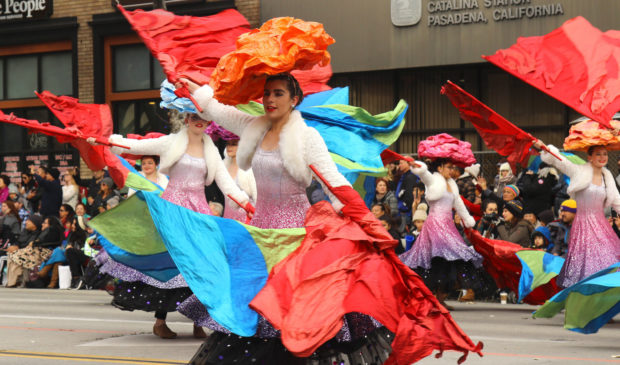Events ordinance approaching completion, with rules TBD
Monday, April 23, 2018 by
Chad Swiatecki It appears that the city’s ordinance to manage the thriving and lucrative special events industry in Austin is finally about to become a working part of local code.
City Council is expected to have a third reading and final approval of the ordinance at its May 10 meeting, nearly five years since officials first began trying to streamline and improve the process that local groups and event planners must go through to host gatherings of various sizes and impacts around the city.
But even if Council approves the measure then, city staff will still need time to craft the rules regarding notification of neighbors impacted by an event and the deadlines for submission and approval, as well as the process to appeal a decision in a timely manner.
Bill Manno, program manager for the Austin Center for Events, which coordinates city planning for most events including the South by Southwest and Austin City Limits festivals, called the current appeals process “cumbersome” because the window to get an appeal on the Council agenda burns through scarce planning and decision-making time for event planners and city staff.
“Even if the applications come in on the stated deadline, it’s then difficult to get on the Council agenda. Usually that’s around 30 days, and our goal is to advance the process,” he said. “We want to have a way for the applicant to go before the relevant department heads from within ACE, but some (applicants) tell us they still want access to Council for an appeal.”
Council had pushed for the events ordinance to be finalized and made official last fall so it would be in place to govern events during this year’s SXSW festival – routinely the most busy events period of the year with more than 200 applications submitted, making it the time when Manno and other city staff reach capacity for evaluating and planning for potential large events.
That approval was delayed because it was determined the ordinance, which moves toward a tiered system for deciding when and where prospective events are approved, had been altered enough from its initial 2014 structure to require a new public input process.
Those sessions brought about a variety of suggestions including earlier application deadlines, a more efficient inspection and approval process and the ability to pay a higher fee to have an application evaluated if it is submitted after a deadline.
Manno said the crafting of the ordinance’s rules will be where its final impact is determined, which leaves many event planners and residents worried about event impact waiting to see how effective it will be. That process is expected to continue through the summer.
“The biggest concern is what changes are going to take place, because we’ve already been operating according to what’s in the ordinance as they’ve been working on it,” said Cindy Lo, owner of Red Velvet Events in Austin. “I’m worried that they could use some of the vagueness that’s in there against us because different people interpret things differently, and you don’t know what could happen if something’s not clear in black and white.”
Lo said the events her company plans for corporate clients can easily exceed $50,000 and often require some type of road closure or right of way usage that must be approved far enough in advance to make the event feasible.
“We need some clear rules, too, because we can’t find out three days before that we don’t have a permit,” she said. “I’d like to see something where as soon as we apply we can know some way or another within 72 hours, and I’d prefer being able to be charged a higher (application) fee if I were able to get it reviewed after a deadline.”
Ingrid Weigand, chair of the Bouldin Creek Neighborhood Association Parks Committee, said she and other residents plan to stay involved as ACE works to draft the rules of the ordinance that has been years in the making.
“I’m surprised that there’s still so many items coming together through the rules process, so we want to continue to give our input,” she said. “It’s a little frustrating that this has taken this long, but it is a thorny issue that seems like it got put on the back burner. I’m just glad it looks like we’re getting somewhere with this issue because it’s got to be frustrating for the people in the events industry to have to go from place to place in the city to try to get through the process.”
Photo by Prayitno made available through a Creative Commons license.
The Austin Monitor’s work is made possible by donations from the community. Though our reporting covers donors from time to time, we are careful to keep business and editorial efforts separate while maintaining transparency. A complete list of donors is available here, and our code of ethics is explained here.
You're a community leader
And we’re honored you look to us for serious, in-depth news. You know a strong community needs local and dedicated watchdog reporting. We’re here for you and that won’t change. Now will you take the powerful next step and support our nonprofit news organization?



